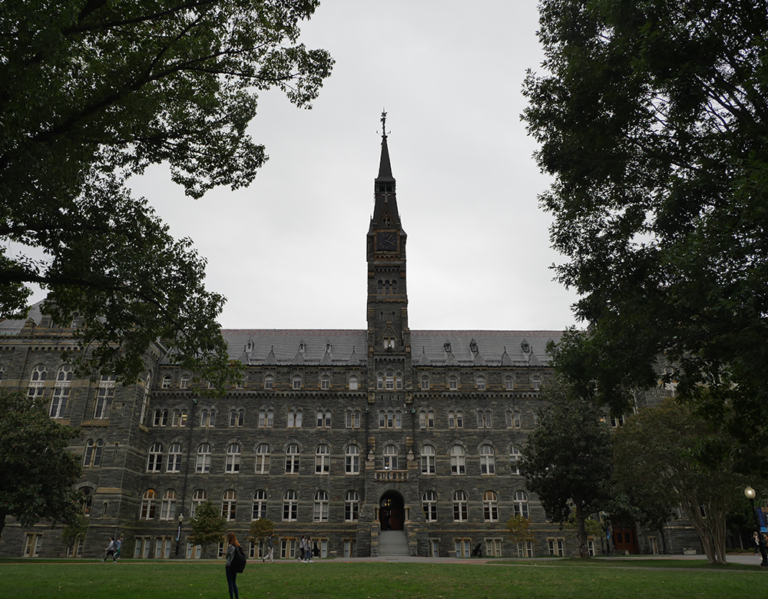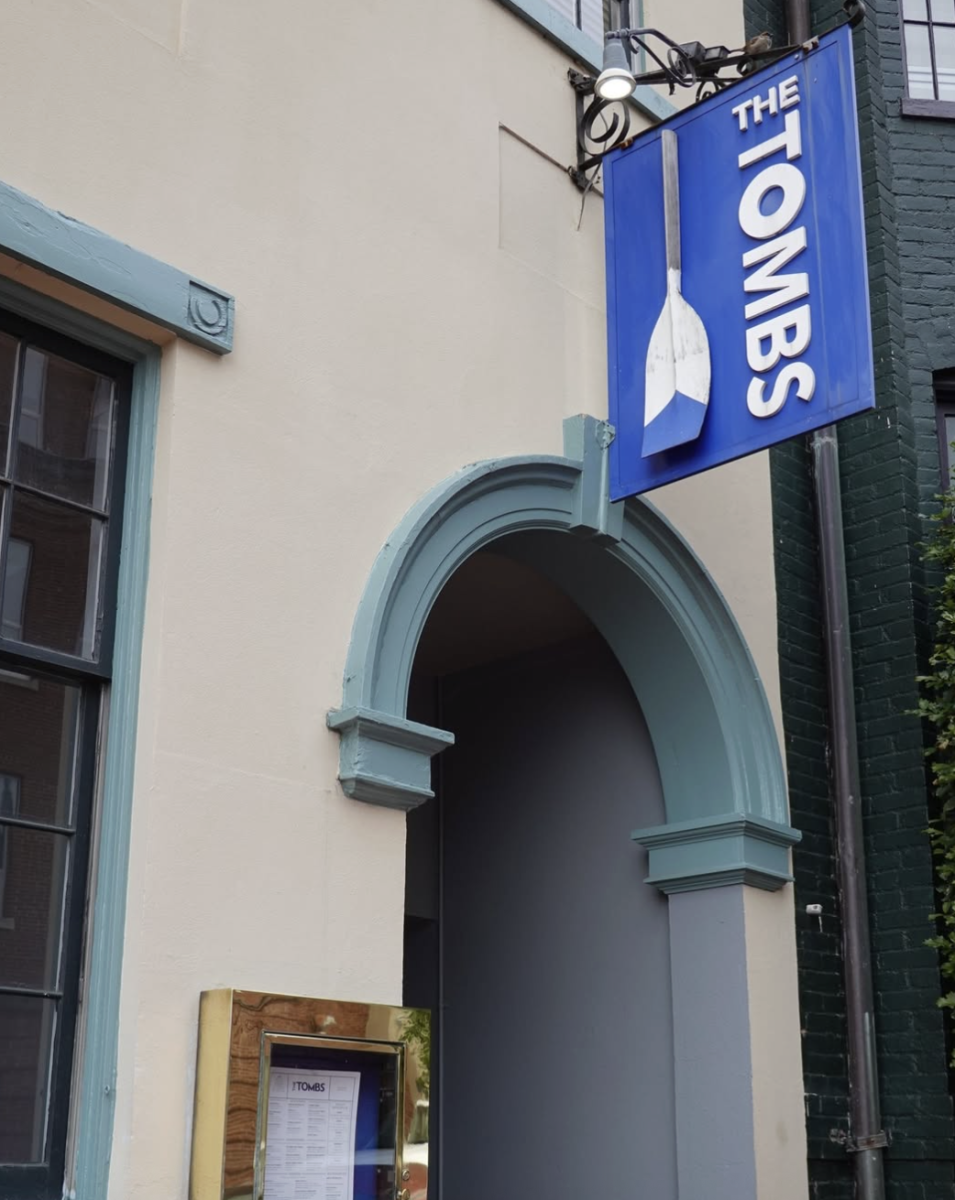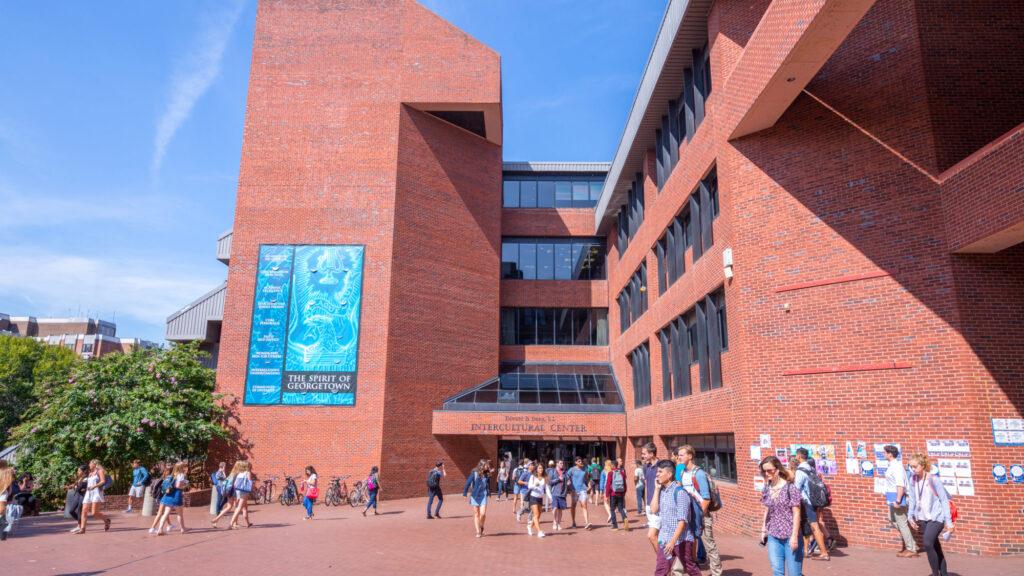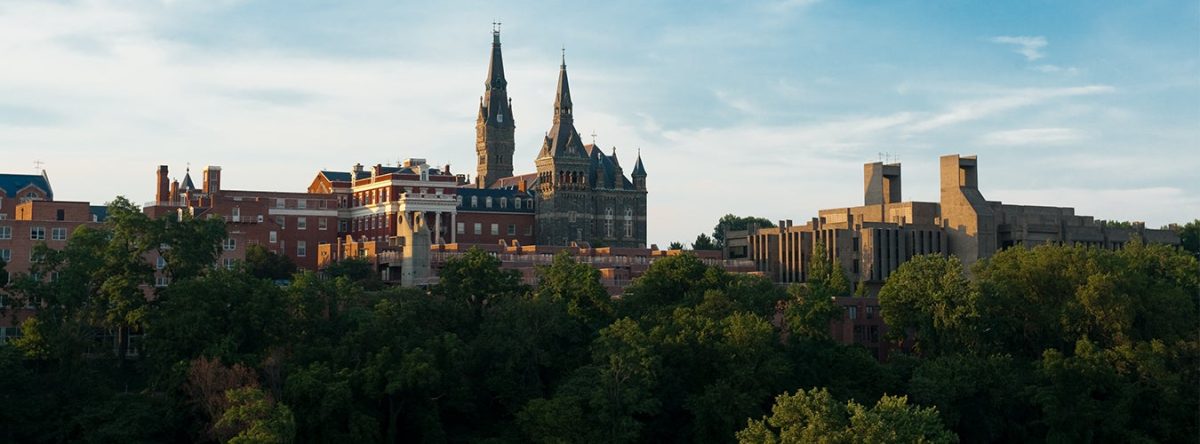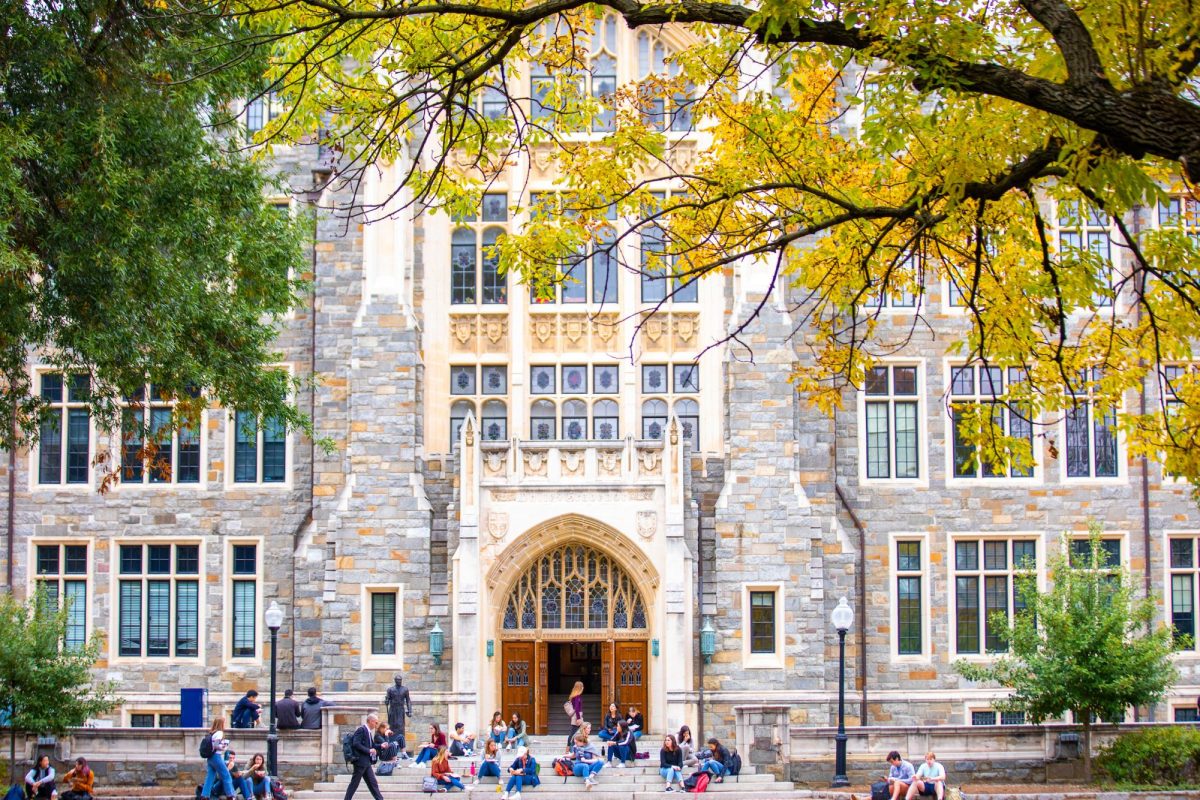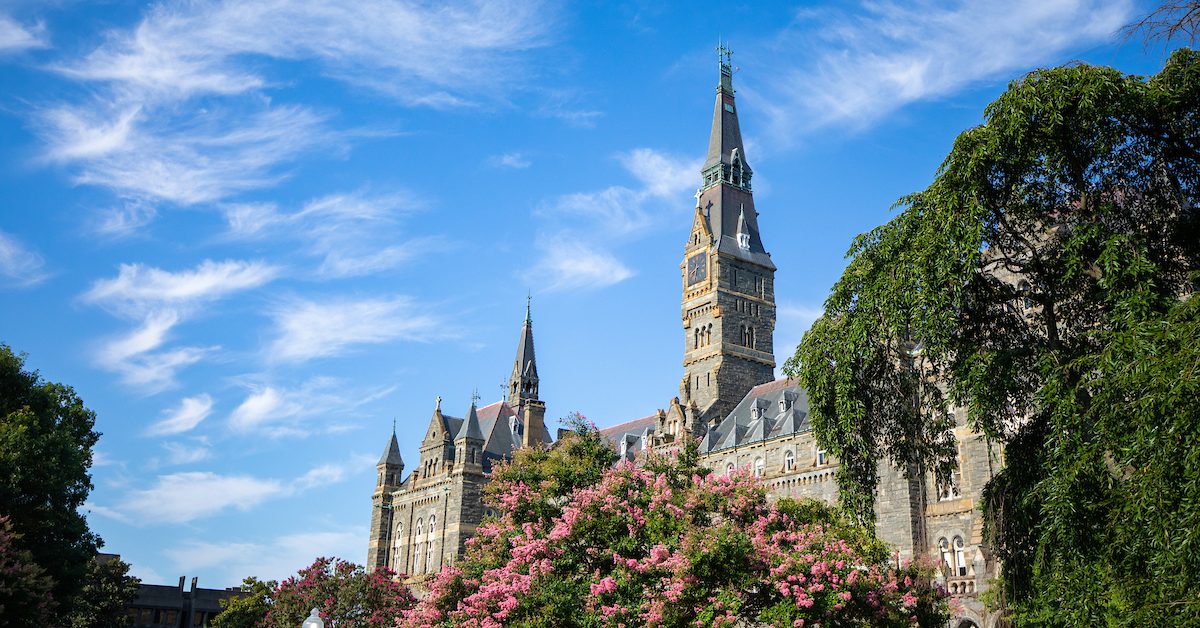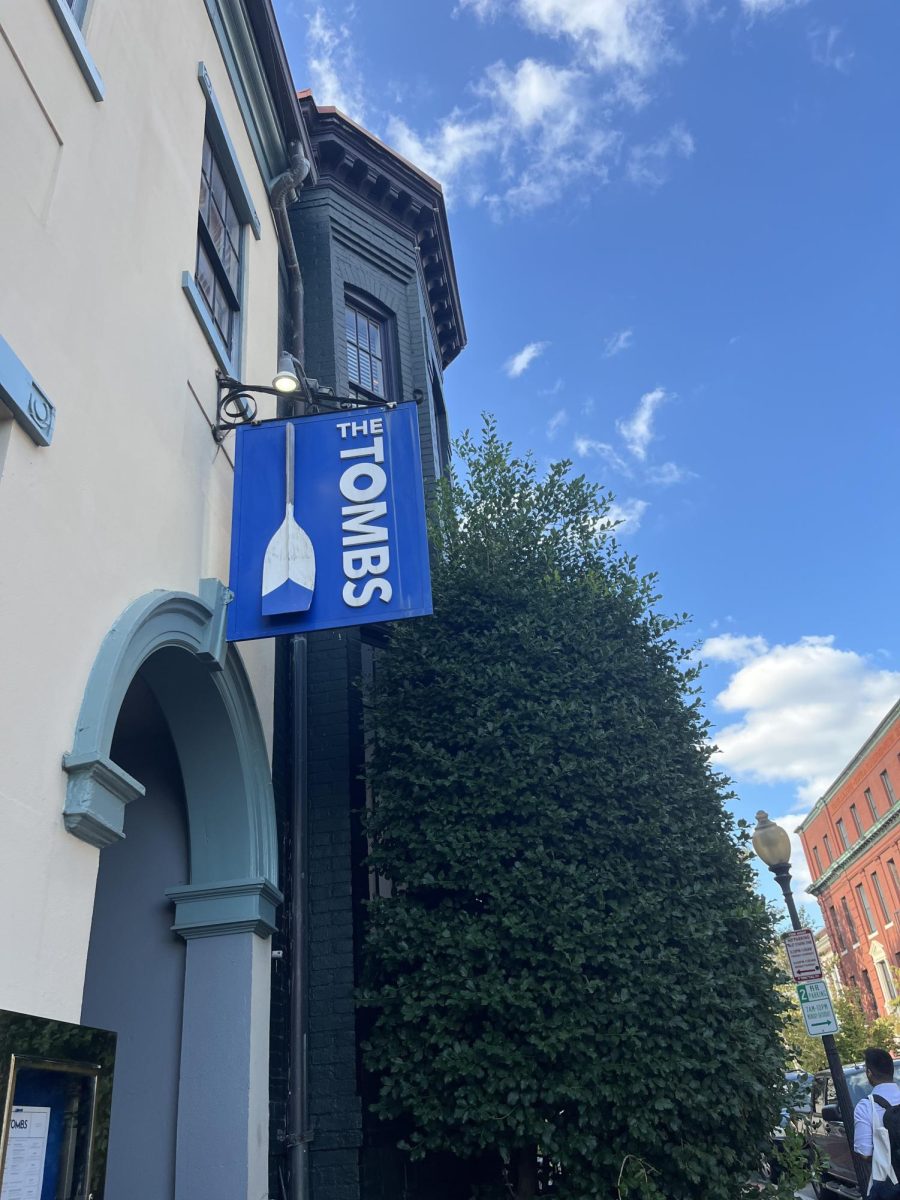First-year and at-large candidates for the Georgetown University Student Association (GUSA) Senate emphasized resource allocation and student participation in a Nov. 4 town hall debate.
The debate, which The Hoya moderated, featured seven of the ten Class of 2028 GUSA Senator candidates, including Harry Block (CAS ’28), Tyler Chase (SFS ’28), Nikki Jiang (SOH ’28), Paul Nassar (SFS’28), Amelia Snyder (SOH ’28), Zadie Weaver (CAS ’28) and Michael Francis Williams (SFS ’28). Five of the six at-large candidates, including Aidan Patrick Liss (SFS ’26), Nico Santiago (CAS ’27), Youngsum Sim (SFS ’27), Saahil Rao (SFS ’27) and Olivia Mason (CAS ’26), were also present for the town hall, allowing all of the candidates to respond to questions pertaining to candidacy, policy and administrative opinions.
First-year candidates Cameran Lane (CAS ’28), Emma Nicotra (CAS ’28) and Sam Schwartz (CAS ’28) and at-large candidate Hassan Malik (SOH ’26) did not attend the Town Hall.
Jiang said GUSA should make realistic changes without false promises to members.
“I think a lot of the hate or the critique that GUSA gets is that we don’t get anything done,” Jiang said at the town hall. “I think a main part of that is that because many people make big promises to get people to vote for them to make them, and then those promises don’t get carried out, and that’s why we don’t have that kind of trust with the people that we’re still representing.”
Chase said he wants to be a senator to serve the first-year class.
“I want to use my position to talk to people and to take their concerns and bring them forward, bring them up and bring ideas into policy and advocacy,” Chase said at the town hall. “I think it’s important that we remember that as GUSA senators, we’re no different than anybody else at the base; we’re just the means for people to communicate their ideas.”
Weaver said she plans to help first-years transition to college through initiatives such as a specific newsletter.
“I think we’re all pretty much in agreement that the adjustment space is very difficult,” Weaver said at the town hall. “I think we should do something that’s just for every freshman. It’s not just like flyers, so that if you happen to see a walking by, every freshman receives it. It’s curated for the freshmen, and it just helps everyone get to know what they’re supposed to be doing.”
Mason, a current at-large senator, said that as the only female-identifying student running for an at-large seat, she believes diversity is vital in GUSA.
“I’m the only female on this panel right now,” Mason said at the town hall. “I think that is something unique that I bring to this position.”
Liss said he is running because he wants to address inequities on campus.
“While I love Georgetown, I feel like there’s a deep-rooted equity and access problem at this university, and I think that GUSA is a great instrument to make progress on that,” Liss said at the town hall. “So specifically, I’m seeing equity and transparency issues around finances, so getting into Georgetown, legacy admissions is super important to me.”
Rao said he hopes encouraging transparency in GUSA would encourage student participation in student government.
“I think a low level of student engagement, in some sense, is just going to be endemic to GUSA,” Rao said. “This is a simple, low cost fix. Be more transparent here. Give more updates here, and those are just very small, incremental wins.”
Mason said that to legislate on the student body, she will remain involved in student life and encourage GUSA to do the same.
“It takes being an active student on campus in the first place to know what’s going on. You can’t legislate on issues you don’t know anything about,” Mason said. “I think that is how you build that mutual relationship of the senators understanding the students and the students know what senators do.”
Voting opened 8 p.m. Nov. 5 and closed 8 p.m. Nov. 7. All voting was ranked-choice.
Nora Toscano and Ruth Abramovitz contributed to reporting.



